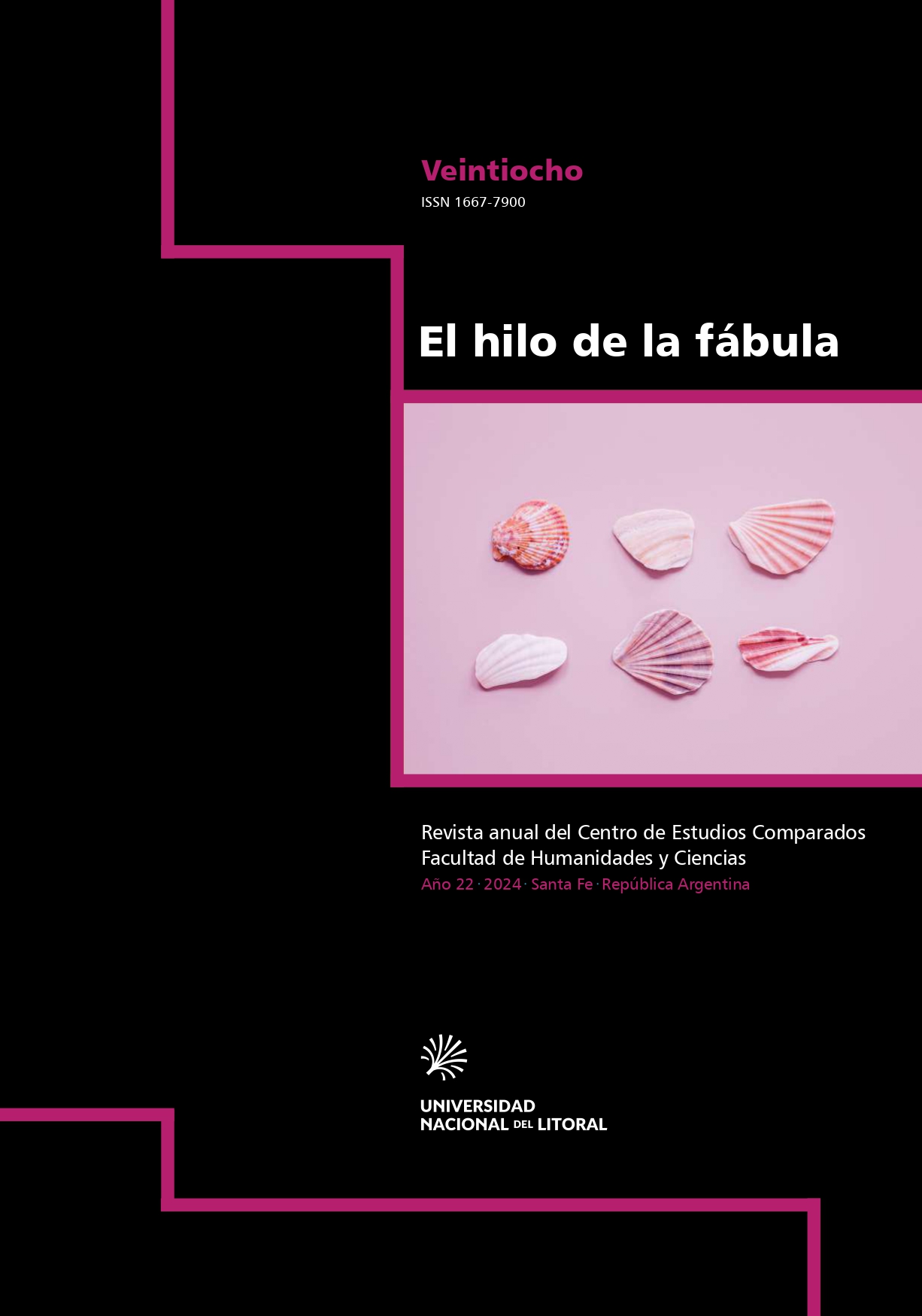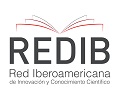Neapolitan tetratology by Elena Ferrante: a female development novel of the 21st century
DOI:
https://doi.org/10.14409/hf.2024.28.e0053Keywords:
Elena Ferrante-female development novel-feminism-italian literatureAbstract
This article aims to analyse the elements linked to the formative novel in the Elena Ferrants’s neapolitan tetratology that includes the works: My Brilliant Friend (2011), The Story of a New Name (2012), Those who Leave and Those who Stay (2013) and The Story of the Lost Child (2014).
The trajectories of the protagonists of the neapolitan tetratology linked to the literary tradition of what was called the female development novels will be explored with the purpose of identifying the twists and narrative resources that show a break with the female heroines analysed in the 20th century. The purpose of identifying the formal aspects related to the process of formation of female subjects in Ferrante's work is linked to the relevance of her proposal, which subverts the models analysed by feminist literary criticism of the seventies and that raises discussions related to the feminist debates of the 21st century.
References
Referencias bibliográficas
Angelotti, A. L. F. (2021) “A tetralogia napolitana de Elena Ferrante como um bildungsroman feminino: as especificidades na construção de trajetórias femininas”. En Revista Entrelaces, v. 11, n. 4, 51-69.
Abel, Elizabeth, Hirsch, Marianne y Langland, Elizabeth (1983). The Voyage In: Fictions of Female Development. Hanover/Londres: NH University Press of New England.
Bullaro, Grace y Love, Stephanie V. (2016) The works of Elena Ferrante: Reconfiguring the margins. Stanislao G. Pugliese Hofstra University Hempstead, New York, USA
Ferrante, Elena (1992). L'amore molesto. Roma: E/O. [trad. esp.: Crónica del desamor, Buenos Aires, Penguin Random House Grupo Editorial S.A, 2017].
Ferrante, Elena (2012). Storia del nuovo cognome. L'amica geniale. Volume secondo. Roma: E/O. [trad. esp.: Un mal nombre, Buenos Aires, Penguin Random House Grupo Editorial S.A, 2016].
Ferrante, Elena (2013). Storia di chi fugge e di chi resta. L'amica geniale. Volume terzo. Roma: E/O, 2013. [trad. esp.: Las deudas del cuerpo, Buenos Aires, Penguin Random House Grupo Editorial S.A, 2016].
Ferrante, Elena (2014). Storia della bambina perduta. L'amica geniale. Volume quarto. Roma: E/O, 2014. [trad. esp.: La niña perdida, Buenos Aires, Penguin Random House Grupo Editorial S.A, 2016].
Ferrante, Elena (2006). La figlia oscura. Roma: E/O. [trad. esp.: La hija oscura, Barcelona, Lumen, 2018].
Ferrante, Elena. (2011). L’amica geniale. Roma: edizioni e/o. [trad. esp.: La amiga estupenda, Barcelona, Lumen, 2020 ].
Ferrante, Elena (2017). La frantumaglia. Un viaje por la escritura. Traducción de Filipetto, C.. Lumen. (en italiano)
Ferrante, Elena (2016). La frantumaglia. Nuova edizione ampliata. Roma: E/O
Ferrante, Elena (2019). L'invenzione occasionale. Roma: E/O
Fraiman, Susan (1993). Unbecoming women: British women writers and the novel of development. Columbia: Columbia University Press.
Gómez Viu, C. (2009). “El Bildungsroman y la novela de formación femenina hispanoamericana contemporánea”. En EPOS Revista de Filología, 24, 107-117.
González Rossi, A. M. (2021). “Lenù y Lila: análisis de la representación de la amistad femenina en La amiga estupenda de Elena Ferrante”. Tesis dirigida por Matilde Martín González Máster Universitario en Estudios de Género y Políticas de Igualdad.
Koval, Martín Ignacio (2014). “El Bildungsroman alemán”. Tesis de doctorado, Facultad de Filosofía y Letras, Universidad de Buenos Aires.
Koval, Martín Ignacio (2018). Vocación y renuncia: la novela de formación alemana entre la Ilustración y la. Primera Guerra Mundial. Buenos Aires Aires: Facultad de Filosofía y Letras.
Lagos, María Inés (1996). En tono mayor: relatos de formación de protagonista femenina en Hispanoamérica. Santiago de Chile: Editorial Cuarto Propio.
Lukács, Georg. (1975). El alma y las formas y la teoría de la novela. México: Ediciones Grijalbo.
Maksimowicz, Christine. (2016). “Maternal failure and its bequest: Toxic attachment in the Neapolitan novels.”. En Bullaro, Grace y Love, Stephanie V. (eds.) The works of Elena Ferrante: Reconfiguring the margins. Stanislao G. Pugliese Hofstra University Hempstead, New York, USA, pp. 207-236.
Milkova, Stiliana (2021). Elena Ferrante as World Literature. Londres: Bloomsbury Academic.
Moretti, Franco (1987) The Way of the World. The Bildungsroman in European Culture. London: Verso.
Muraro, Luisa (1994). Traducción de Albertini, B. El orden simbólico de la madre. Madrid: Horas y HORAS.
Pessoa Pedrosa, C. (2023) “O bildungsroman feminino de Elena Ferrante e Lygia Fagundes Telles: um estudo comparativo entre A Amiga Genial e Verão no Aquário”. Tesis de Maestraía presentada en la Universidad Federal Fluminense (UFF)
Pratt, Annis (1981). Archetypal Patterns to Women's Fiction. Bloomington: Indiana UP
Rafaelly Soares Silva, E. (2022). “Maternidade incomoda e jogos de espelhos femininos na tetralogía napolitana” Tesis de Doctorado presentada en la Universidad Federal Do Ceará Centro de Humanidades Departamento de Literatura Programa de Posgraduación en Letras.
Ricciardi, Alessia (2021). Finding Ferrante: Authorship and the politics of world literature. Columbia University Press.
Sammut, Patrick. “Donne e spazi nella tetralogia L’amica geniale di Elena Ferrante: un bildungsroman del ventunesimo secolo?” Tesis de doctorado presentada en la Facultad de Artes, Universidad de Malta (2021)
Santovetti, Olivia (2021). “Künstlerroman of "Late Modernity": Karl Ove Knausgård's My Struggle and Elena Ferrante's Neapolitan Quartet”. En Modern Language Notes, 136 (1) pp. 186-208
Santovetti, Olivia (2018). Melodrama or Metafiction? Elena Ferrante’s Neapolitan Novels, The Modern Language Review, 113.3, 2018, 527-545
Downloads
Published
How to Cite
Issue
Section
License
Copyright (c) 2024 María Belén Castano

This work is licensed under a Creative Commons Attribution-NonCommercial-ShareAlike 4.0 International License.












